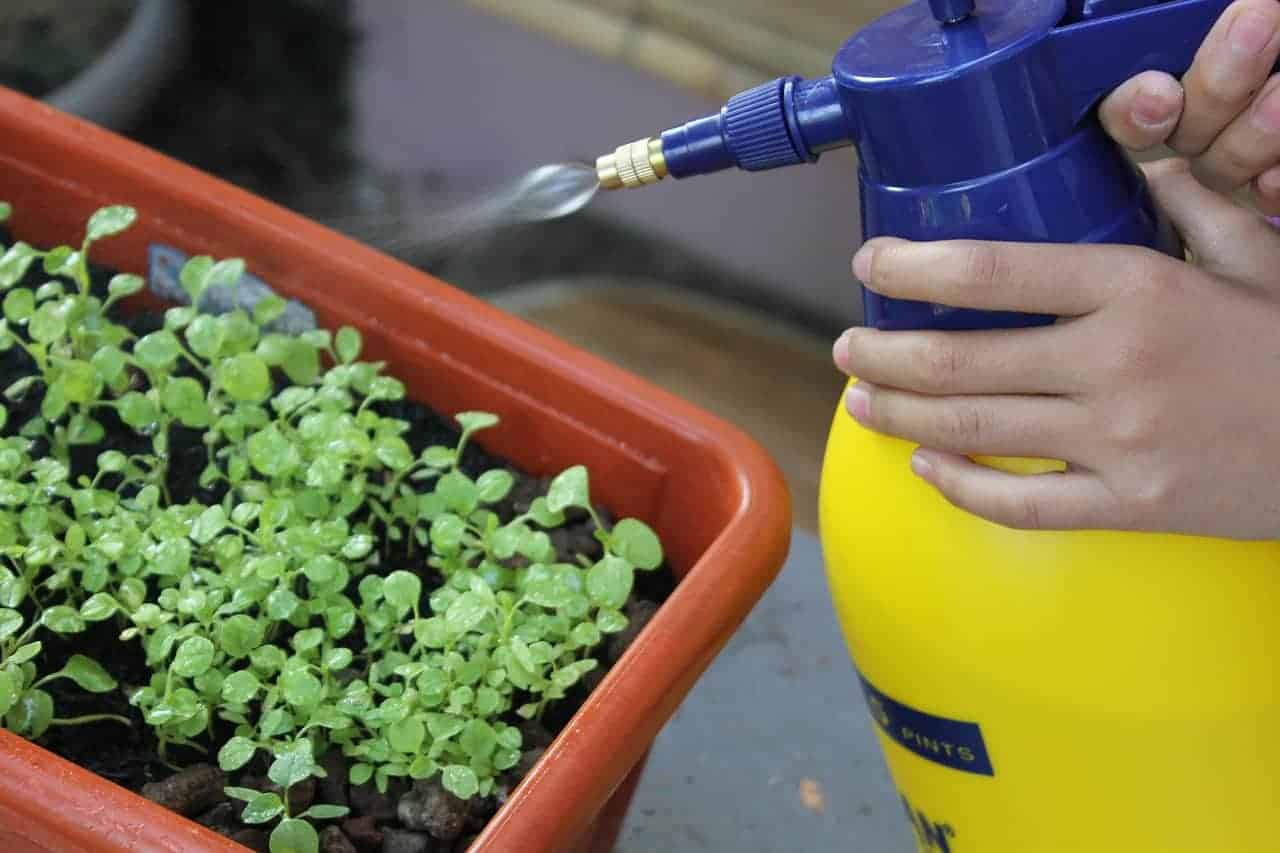As the tropical rains increase in Costa Rica during the year, so do the bugs – and for the gardener, that can spell trouble. Most gardeners these days are looking for safe products to use for the garden, so this is a collection of natural insect controls you might find useful and can make right in your kitchen.
Here are my 7 favorite homemade Pest-Control Recipes to help you keep everything under control during the Costa Rica Rainy Season.
1. All Purpose Insect Spray
- 1.5 tsp. of baking soda
- 1. 5 tsp. of natural liquid soap (or 1 tsp. of Bio Land glycerin soap)
- 1 tsp. of cooking oil
- 1 tsp. of vinegar
- 5 cups of warm water
Blend all ingredients together with the warm water, then use a hand-held spray bottle to mist plants until they are dripping wet. Also spray the walkways and areas around your plants. This spray has two functions: It makes the leaves of the plants less palatable for the bugs, and it penetrates bugs’ exoskeletons, causing them to become sick. Can be used weekly as preventive measure.
2. The Plant Protector Spray
- 1 cup of brown sugar
- 1 cup of 3% hydrogen peroxide
- 1 gallon water
This formula is effective as a plant enhancer and protector. Spray this mixture on your plants, and watch them turn dark green and shiny. The plants absorb the sugar solution into their leaves, while the hydrogen peroxide cleans the leaves of bacteria and fungus, creating healthy plants that bugs don’t like to eat.
Some researchers speculate that the high levels of sugars in the leaf tissues may actually cause the bugs to become drunk from the fermentation of excess sugars into alcohol in their bodies.
It can be sprayed once a week as a preventive measure. The extra bonus this spray provides is tastier fruits and vegetables.
3. Homemade Garlic Spray
- 90 g chopped garlic cloves
- 2 tablespoons of cooking oil
- 15 g Bio Land’s glycerin soap
- 500 ml warm water.
Mix garlic and oil together and let steep for 48 hours. Dissolve grated soap in warm water and then mix the 2 solutions together; strain. Use 1 part mixture to 50 parts water. Spray as usual.
This organic pest control is useful against many insects and some caterpillars. It works best in the greenhouse or around the porch where the plants are protected from the rain.
4. Homemade Onion and Chili Spray
- 2 hot chilies, chopped
- 2 large onions, chopped
- 1 bulb garlic, chopped
- 1 L Bio Land’s glycerin soap solution
This homemade insecticide and pesticide is very effective against any leaf-eating insects. Best used in the greenhouse or porches where plants are protected from the rains. Combine all the ingredients, including the seeds from the chilies. Cover with the soapy water and allow to steep for 24 hours. Strain. Add water to dilute if required and spray. Can be stored in a sealed container in the refrigerator for up to 2 weeks.
5. Homemade Sugar Drench
This organic control is effective against nematodes. Dissolve 2 kg sugar in a bucket of water. Drench the soil to kill nematodes. Molasses can also be used, but don’t use honey, as this may transmit disease back to the bees.
6. Coffee Grounds and Lemon Juice Spray
A agent for repelling ants and other types of pests, this mixture is very easy to prepare. Boil old coffee grounds in 1 liter of water with 1 diced lemon along with some cinnamon. Strain the mixture and add some cayenne pepper. Spray the liquid under the leaves and on the roots to keep the pests away from plants.
You can usually ward off fire ants by pouring boiling water on their nests. If several applications don’t work, try this recipe. The orange or lemon rinds have an oil which dissolves the ant’s skin or exoskeleton.
7. NT Control Solution
- 6-12 Orange or lemon rinds
- 125 ml feed-grade molasses
- 4 liters of water
Boil the mix for 10 minutes, then apply to the ant nests.
Finally, remember that fertile soils are the key to healthy plants and people. Healthy plants usually have fewer insect attacks, so fortify your soils with healthy organic fertilizers and use the above controls with moderation. Until next time, enjoy your time in the garden.
This article first appeared in 2014






